Abe betrays history's conscience
Updated: 2015-04-30 09:07
By Chen Weihua(China Daily USA)
|
||||||||
To many who want right-wing Japanese Prime Minister Shinzo Abe to clarify his views on history and apologize for the Japanese military's atrocities during World War II, his address to a joint session of the US Congress on Wednesday came as a huge disappointment.
In the first-ever such speech by a visiting Japanese prime minister, Abe only expressed remorse over Japan's role in WWII. He did not call the war "aggression" on the part of Japan or mention the coercion used by the Japanese military in the comfort women outrage, when Asian women were forced into sexual slavery. These are just two of many issues raised by Abe's controversial views on historical facts.
The speech clearly shows that Abe has not changed his views on this 70th anniversary of the end of WWII. The Japanese prime minister has caused more pain to people in neighboring countries in the past years by questioning whether WWII constituted an aggression on the part of Japan and denying that coercion was used by the Japanese military in running the appalling comfort women system.
In his speech, Abe just kept focusing on Japan's post-WWII role in the world. But Japan's positive contribution to the world in the past decades does not grant Japanese leaders and politicians the right to whitewash history. We have not seen German leaders try to rewrite Nazi history or deny the Holocaust on the grounds that post-war Germany has made great contributions to world peace and prosperity.
It is true that people may hold different views, but should we allow differences when people like Abe try to deny "aggression" and "coercion" on the part of Imperial Japan?
It is hard to believe that Abe's remorse expressed on Wednesday is genuine at all, since he even refused to express an apology to the people who have suffered from Japanese militarism.
If Abe is true to holding the general stance on history of successive Japanese prime ministers, then why it is so difficult for him to say the word "apology" explicitly, or just repeat words in the 1995 apology issued by then Prime Minister Tommich Murayama on the 50th anniversary of the end of WWII. Demanding an apology from right-wing Abe is certainly not as outrageous a request as some might think.
While Abe's stubborn revisionist views may be nothing new, it is shocking that US leaders, including President Barack Obama, have chosen this time to collaborate with him, without demanding he make an apology and clarify his views on history. In fact, no senior US officials have touched on Abe's controversial views during his eight-day visit so far.
This is sheer appeasement to right-wing Abe and a hugely disrespectful to those who sacrificed their lives fighting Japanese militarism during WWII. Clearly, in seeking Japan's support in achieving the US rebalance to Asia strategy and the US-led Trans-Pacific Partnership (TPP), many US politicians have chosen to give Abe a pass on history.
Abe knows this all too well, so he skillfully played US politicians by expounding on how loyal Japan is to the US. Yet no matter how loyal some may think Abe is to the US, denial of history is not loyalty but a total betrayal of humanity's collective conscience.
Abe's failure to clarify and correct his troubling historic views on such an important occasion means that he has definitely not got a pass from the people of China and Korea who suffered most at the hands of Japanese militarism, and know the truth.
The author is deputy editor of China Daily USA. Email: chenweihua@chinadailyusa.com.
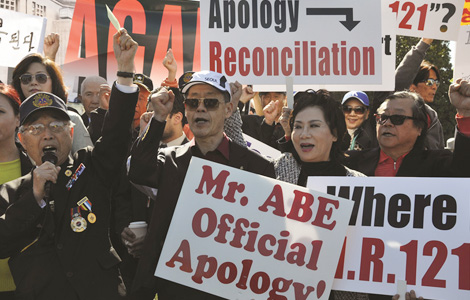
 Across America over the week (from April 24 to 30)
Across America over the week (from April 24 to 30)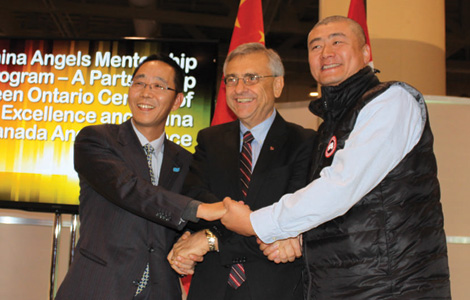
 Across Canada (May 1)
Across Canada (May 1)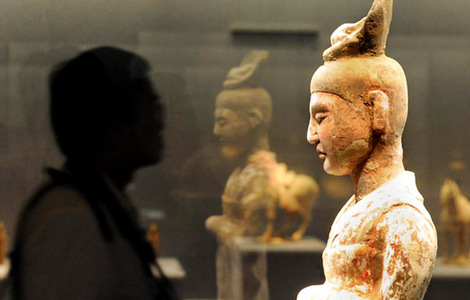
 China's top 10 GDP provinces in Q1
China's top 10 GDP provinces in Q1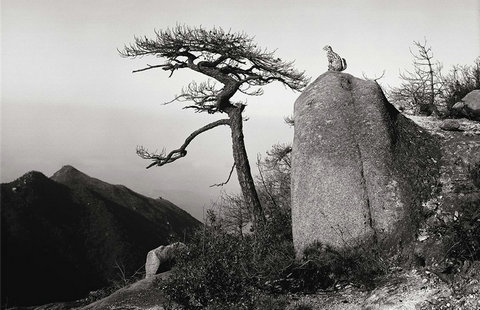
 Photos capture marvelous landscapes of China
Photos capture marvelous landscapes of China
 Mass exodus from Kathmandu
Mass exodus from Kathmandu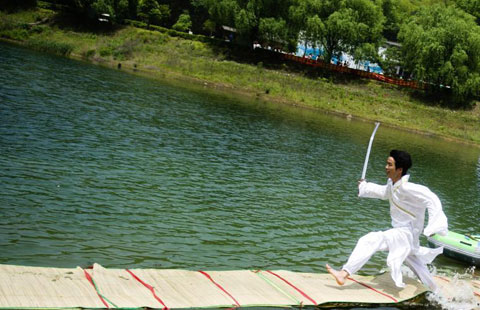
 Running on water: a nearly impossible feat
Running on water: a nearly impossible feat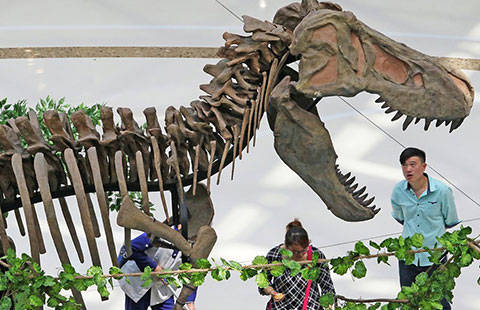
 Ten photos you don't wanna miss - April 30
Ten photos you don't wanna miss - April 30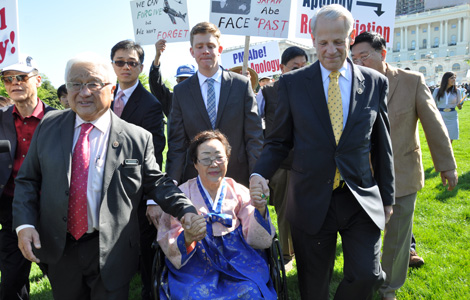
 'Comfort women' survivor attends protest of Japan PM
'Comfort women' survivor attends protest of Japan PM
Most Viewed
Editor's Picks

|

|

|

|

|

|
Today's Top News
Abe protests continue in SF
Abe betrays history's conscience
The 'nightmare' everyone saw coming
Vancouver property developer identified as Chinese fugitive: report
Freddie Gray tried to hurt himself in police van
China trainmakers seek control of Bombardier's rail unit
New rich set sights on tech, media and telecom sectors
US rapped for stance on Japan
US Weekly

|

|






